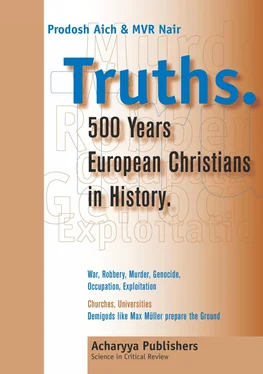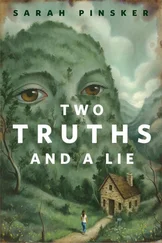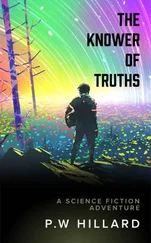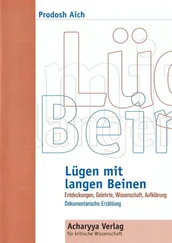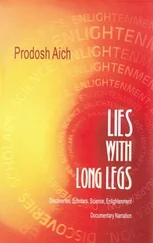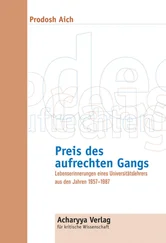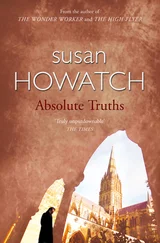His academic teacher Carl Joseph Hieronymus Windischmann, a professor of philosophy and history, encouraged his son and Franz Boppto study “linguistics” at some other University, whatever “linguistics” might then have been. In our simplicity of mind, we first assumed that “linguistics” is a science-based post-philology discipline. Then we looked into the eventual meaning of the word to comprehend that “linguistics” has to do with languages only. Then why cover it with a Latin word? Is it also a deceptive package like “philology”?
Then we started consulting books of reference. The result is enlightening for us. It is a relatively new deceptive package. We won’t go deep into it just now. Only this much here. It is rooted, so it is maintained, in the Sanskrit language and its grammar. Modern scholars of languages have discovered relatively recently that sound and meaning of words are interrelated. The demigods of this discovery are William Jones, Wilhelm von Humboldt, Franz Bopp, Noam Chomsky, etc.. We shall have to deal with the first three demigods later in due course because of their claims of knowing the Sanskrit language.
Now we get back to Carl Joseph Hieronymus Windischmannand to his advising Franz Boppto study “linguistics” after he failed finally to earn the doctor’s degree at the University of Aschaffenburg. Probably Professor Windischmannwas fulfilling his dreams projected in the next generation. Why his dreams? Almost 80 years later Salomon Lefmann(1831–1912), professor of Indology at Heidelberg University, is to hit the nail on the head describing the spirit of that time, which had led to dreams, writing these lines in his book “Franz Bopp, his life and his science, Berlin 1891–1897", (p. 11–12):
“While princes and peoples anxiously following the current events were directing their eyes to France, where a powerful war lord, having taken possession of the inheritance of the revolution, had thence seized power over Germany and Europe, the philosophers and scholars were looking at a Far East and at a far away past. All wisdom and all sciences, all art and culture, had emerged there, there in the Orient, where the cradle of mankind had been. One had to take up oriental issues, study oriental antiquity, oriental philosophy, oriental languages – Hebrew, Arabic, Persian and – was anything impossible – the culture of Egypt, the language and literature of ancient India.
Beside the wonderland Egypt, brought nearer through Napoleon’s campaign, its mysterious priestly wisdom and picture scripts, indeed even more than this and more than any other country of the world India captured the fantasy. What one knew was little, the more what one did believe, both was, however, enough to push the devote enthusiasm of that time and of people to a climax. With the light of dawn, which had then just risen there, a cheerful morning was already shining to them promising the fulfilment of the most beautiful dreams and sentiments.
Since hardly two decades the English people had established their rule in India, had started their pioneering works there. The first reports of the Calcuttan society were received with true enthusiasm; everything that came from there was accepted with faithful reverence, and new revelations about the ‘oldest’ language and wisdom of mankind with boundless longing. A language ‘more perfect than Greek, more copious than Latin, and more exquisitely refined than either’, as Sir William Jones said, and yet in near kinship with both...”
As promised, we shall deal with Sir William Joneslater. We have read, yes, we had to read repeatedly these lines written by Salomon Lefmannin 1881. Not because of his remarkable style of expressions like: ‘with faithful reverence’ or ‘with boundless longing’ . No. We are also not criticising that Salomon Lefmann, as a religious Jew, for his failure to realise that Hebrew and anything Jewish had been excluded from the blond-blue-eyed-white-Christian culturemore than half a century earlier. We criticise solely this culturethat produced and produce not only “anti-Semitism” but “Salomon Lefmanns” as well.
Even in Carl Joseph Hieronymus Windischmann’sand in Franz Bopp’s lifetime one could have known how cruelly the successors of Columbushad committed genocide and how beastly the massacres in the land of “new revelations about the ‘oldest’ language and wisdom of mankind” performed by the “ Vasco da Gamas”, by Portuguese, by Britons, by Dutch and by French heirs. There was no dearth of reports given by eyewitnesses.
How much perversion did it require to write a sentence like: ‘Since hardly two decades the English people had established their rule in India, started their pioneering works there’? And how should one evaluate the fact that this sentence or sentences like this has notbeen criticised and corrected by even one single renowned poet, writer, theologian, philosopher, scientist belonging to “the wonder that was” this culture prevailing up to our days?
It is absolutely not the case that Salomon Lefmannwasn’t able to formulate critical sentences. What did he write referring to Napoleon? ‘While princes and peoples anxiously following the current events were directing their eyes to France, where a powerful war lord, having taken possession of the inheritance of the revolution, had thence seized power over Germany and Europe, the philosophers and scholars were looking at a Far East and at a far away past.’
We do not wish to raise such questions like: Did people, ordinary people, live in the Orient in those days? Or did anything else exist in the Orient besides riches, ancient wisdom–culture–language, other bootiesand “the fulfilment of the most beautiful dreams and presentiments” as well? Or, for that matter what is the implicit message in Lefmann’s lines? Does it not imply, rather plainly that without the ‘ pioneering works...of the Calcuttan society ', without ‘new revelations’ by a William Jonesall cultural assets in “India” would have been lost for mankind? Do the cultural assets actually belong to their “discoverers”? Yes?
We are not discussing here all these questions. We don’t wish the descendants of Salomon Lefmannto make him a scapegoat for the intellectual lapses within this culture. We are conscious that scions of this culturehave learnt to deny, every responsibility for their atrocities: Crusade, Inquisition, war, genocide in two continents, slave trade, robbery, exploitation, cultural genocide, “anti-Semitism”, annihilation of European Jews, dropping atom bombs, breaking up Palestine, defoliation in Vietnam by dioxin (agent orange), destruction of ancient memorials in Iraq, in Libya and the recent “crusades”. Sorry. Not crusades. The recent moves are “campaigns for democracy”, “campaigns for humanism” of the “civilised international community”. Saturation bombing to prevent “humanitarian disasters” included. Just to indicate the peaks of their criminal activities. The “civilised international community” deny vehemently every responsibility as a matter of principle.
*****
We presently get back to Friedrich Maximilian Müller, to Hermann Brockhaus, to August Wilhelm von Schlegeland to Franz Bopp. The academic mentor, Carl Joseph Hieronymus Windischmann, of the young Franz Bopp, has read the book published by Friedrich von Schlegel, the younger of the Schlegel brothers in 1808: Ueber die Sprache und Weisheit der Indier (On the language and wisdom of the “Indier”). This is the very first “Indological” publication in the German language. The German Orientalists celebrated it like ‘a new gospel’ . Before that, Germany knew nothing about a language calledSanskrit.
Читать дальше
